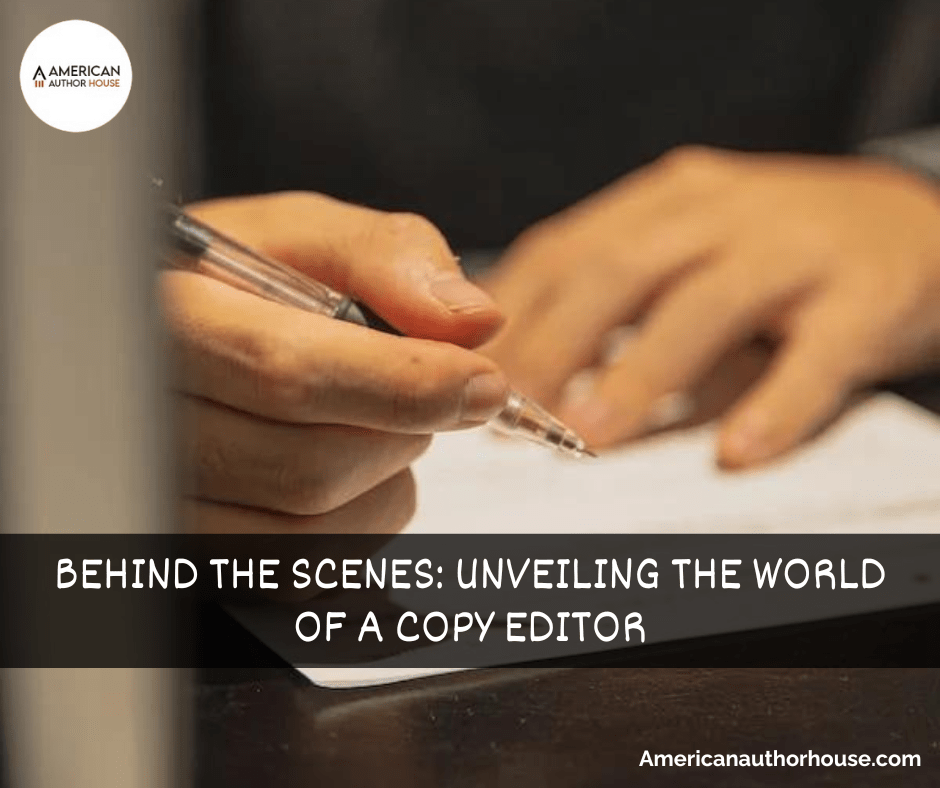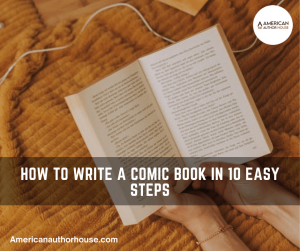
Writing
Copy editors are the unsung heroes of the publishing world. They work behind the scenes to ensure the written word is clear, concise, and error-free. They may not get the same recognition as authors or journalists, but their work is essential to the quality of any publication.
In this blog post, we will take a behind-the-scenes look at the world of copy editors. We will discuss what copy editing is and how to become one. We will also talk about their job duties and the skills they need.
So whether you are a book writing expert, a student, or simply someone interested in the publishing industry, read on to learn more about the important work of copyeditors.
What Is Copy Editing?
“Copy editing” refers to reviewing and revising a written work, the”copy,” to enhance its readability. Copy editors ensure that the writing is consistent in tone and that the transitions between sentences read smoothly.
They edit for continuity, spelling, and grammar errors, and offer suggestions for improving the work’s effectiveness.
How to Become a Copy Editor
So if you are thinking of becoming a copy editor, follow this guideline curated by our American Author House professionals to help you.
Earn a Degree
Copy editors don’t have a bachelor’s or master’s degree to find work. Some employers seek candidates who have completed merely brief online courses.
And few employers value soft skills more than others, such as time management and communication. Some businesses place a higher premium on job history than on academic credentials.
However, having a degree is sometimes important; a background in English or Communications could be necessary for professional book editing.
Or a background in journalism or broadcasting is helpful in many fields, including news editing. A degree in literature or creative writing is useful if you want to edit creative writing.
Some companies will hire candidates with an associate degree or who have taken basic editing courses at the university level. You can also highlight your undergraduate literary journalism, PR, and proofreading coursework.
Read daily
Reading and writing frequently will help you develop good spelling and grammatical habits. This exercise lets you hone your copy-editing skills to find and correct errors.
Skilled writers find the editing process more manageable since they are already familiar with the linguistic conventions.
Learning about the content industry is easiest done by reading and writing. To see what type of copy editing would fit best for your work, you have to Study the shifts, updates, and tendencies.
Write frequently to improve your ability to critique your work. If you do so, you can develop more insightful editing skills with time.
If you wish to edit a certain form of content, you might want to read an example of that type of writing. And if you are editing for the business world, for instance, you should familiarize yourself with a business report, article, or proposal.
Learn about different editing style guides
If you are considering becoming a copyeditor, you don’t just have to focus on the conventional language standard and practical interpersonal skills. You also need to put a lot of effort and research the different style guides.
The guidelines for how a piece of writing should be written and formatted can be found in a style guide. Consider small things like whether the em-dash should have spaces on each side. Research when to use the Oxford comma and how references should be formatted.
Authors aren’t always great at improving these nitpicky aspects of their work, which is why they are so valuable.
One common type of formatting is the Chicago manual style which is widely used as a reference in the publishing industry.
You have more alternatives than ever regarding scholarly writing, from AP to APA to MLA. However, each copy editing job may have its own style guide, so it’s always a good idea to see what would fit best in your field.
Create a good portfolio and CV
Self-employment, including copy editing, requires a solid online presence. This is where potential clients may check out your portfolio and experience before hiring you for a job. So if you want them to hire you, you need to ensure your portfolio is perfect.
Look for Copy Editing Work as a Freelancer
Once you have created a good CV, you should look for work as a freelancer.
Once you have the credentials, the online persona, and maybe even some experience, it’s time to start looking for high-paying customers.
Skills you need as a copy editor
Becoming a boy writer is not easy as it requires you to have certain skills like follows:
Excellent writing skills
You need an exceptional understanding of language to succeed as a copy editor. The editors need to be able to read the material and evaluate if it follows the style guide’s rules while still making sense to the intended readers.
They need to check for appropriate tone and grammar. They need to be able to rewrite the text so that it reads more smoothly.
These skills also include a strong grasp of sentence structure, grammar rules and proper punctuation, including how rules change depending on writing style.
Ability to connect
A copyeditor focuses on the text, but interpersonal skills are just as vital. They frequently interact with authors and other clients in one-on-one settings. For this reason, the ability to communicate effectively is important.
Copy editors should be there for authors, guiding them and encouraging them along the way. Relationships with corporate clients and internal management must also be kept on a professional level. And you can’t accomplish any of it without strong social skills.
The creative and curious mind
Copy editors must be interested in learning more about the topics they proofread and often need to develop creative headlines. They must write unique, amazing introductory paragraphs that grab readers’ attention.
They might also need to take a common topic that many others have already covered and look for a way to write about it with a fresh perspective.
How to copy edit
If you want to become a skilled copy editor, here are a few steps to get you started:
Clarify your job
First, decide how much copywriting you’re going to do. If you’re just starting, it’s best to focus on simple tasks like checking for spelling and grammar.
If you have some editing experience and know the style guides, you may be able to take on a more important editing job.
Read through the words the first time
The first time you read something, you should understand the whole thing and not be told how to change anything.
Reading the whole piece before making your notes will help you understand the text and the writer better.
Reread it and come up with a plan
After you’ve read the text the first time, go back and read it again while keeping in mind a few questions:
- Does the writing show what the author wanted to say?
- Does the way the words are put together make sense?
- Or Does the whole piece have the same tone and style?
- Are there any differences in facts or details?
- Do the ideas move from one line to the next in a smooth way?
Read each line at a time
Start over at the beginning once you’ve looked at the writing and made a plan for how you’ll improve it. This time, review each sentence and make any changes or ideas you think are right. After you’ve made your changes, ensure they follow any writing rules needed.
Main Attributes and Elaborate Information
| Aspect | Details | Impact |
|---|---|---|
| Definition of Copy Editing | The process of revising written material to improve readability and correctness. | Enhances the quality and professionalism of the final publication. |
| Becoming a Copy Editor | Involves obtaining relevant education, reading and writing regularly, understanding style guides, and building a portfolio. | Prepares individuals for the detailed and critical work of editing. |
| Skills Required | Excellent writing, communication, creativity, and attention to detail. | Ensures the ability to improve text effectively and work well with writers and clients. |
| Copy Editing Process | Involves clarifying the scope of work, thoroughly reading the text, planning revisions, and reviewing each sentence carefully. | Produces a polished and coherent final piece of writing. |
| Importance of Copy Editors | They ensure clarity, consistency, and error-free content in publications. | Vital to maintaining the integrity and readability of all forms of written work. |
Conclusion
Copy editors play a vital role in the publishing industry. They ensure that the written word is clear, concise, and error-free. If you are planning on becoming a copywriter, then we hope that you got a bit of understanding about what goes on behind the scenes.



